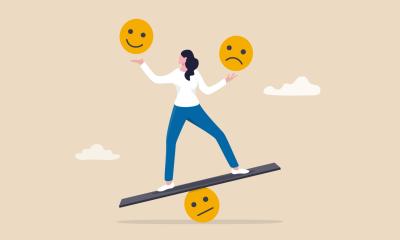News • Werther effect
Media reports of celebrity suicide linked to increased suicide rates
Media reporting of suicide, especially celebrity suicides, is associated with increases in suicide in the general population, particularly by the same method as used by the celebrity, finds an analysis of the latest evidence published by The BMJ.
The researchers say their findings support the continued use and promotion of guidelines on responsible media reporting of suicide, especially when reporting on deaths of celebrities by suicide. A linked editorial suggests that tighter control of media reporting of suicide may be required. News reporting of suicide has increased substantially in recent decades, and a number of studies have shown instances where media reports about suicide are associated with increased rates of suicide.
Responsibility of the media scrutinised

Image source: Edvard Munch artist QS:P170,Q41406, Edvard Munch - Despair (1894), marked as public domain, details at Wikimedia Commons
As a result, guidelines for responsible reporting of suicide by the media are now a standard component of many suicide prevention strategies. But until now, evidence of an association between media reporting and suicide has not been entirely consistent.
To address this knowledge gap, a team of international researchers examined the association between reporting on suicides, especially celebrity suicides, and subsequent suicides in the general population. They also assessed whether reporting on the specific methods of celebrity suicide was associated with suicides by the same method, and whether general reporting of suicide (any reporting or general discussion on the topic of suicide) was linked to suicide. Their analysis is based on the results of 20 studies that compared at least one time point before and up to two months after reports of death by suicide on TV, in print or online news, or in non-fiction books or films. The studies were designed differently, and were of varying quality, but the researchers were able to allow for that in their analysis.

Image source: r2hox from Madrid, Spain, VLC - 20150627 - 103 (19915014229), CC BY-SA 2.0
Reporting of celebrity suicide appeared to increase the number of suicides by 8-18% in the next 1-2 months, and information on method of suicide was associated with an increase of 18-44% in the risk of suicide by the same method. To put this into context, in the UK, where 6,507 people died by suicide in 2018 (542 per month), a 13% increase would amount to around 70 additional deaths. In the five months following the death of the international celebrity Robin Williams by suicide, deaths by suicide increased by almost 10% (1,841) in the United States. General reporting of suicide did not appear to be associated with suicide, although the researchers cannot rule out associations for certain types of reporting.
The best available intervention at the population level to deal with the harmful effects of media reports is guidelines for responsible reporting
Niederkrotenthaler et al.
Several mechanisms could explain these results, including identification with the deceased person, and increased reporting leading to a normalisation of suicide as an acceptable way to cope with difficulties, explain the researchers. The patterns identified in this analysis suggest that media stories on celebrity suicides might increase suicidal thoughts and also contribute to planning suicide with a specific method, they write. They point to some limitations, such as being unable to test causality due to the designs of the original studies, and high levels of variation between studies which could not be fully accounted for. But say this study provides the clearest evidence so far that reporting on suicide, especially celebrity suicides, is associated with increases in suicide in the general population. “The best available intervention at the population level to deal with the harmful effects of media reports is guidelines for responsible reporting,” they write. “These guidelines should be more widely implemented and promoted, especially when reporting on deaths of celebrities by suicide,” they conclude.
These findings will help give media outlets a clearer sense of the potential effect of their reporting, say researchers at the University of Bristol in a linked editorial. They argue that detail, sensationalism, and accounts of the methods used are unnecessary and harmful, while easy access to online information presents particular hazards. Also, repeated reporting about the same suicide should be avoided, particularly if the suicide decedent is a celebrity. As such, they suggest that tighter control of media reporting of suicide may be required. Journalists and news editors “must consider more carefully the costs to population health of sensationalist, detailed reporting of these tragic deaths,” they conclude.
Source: The BMJ
19.03.2020







